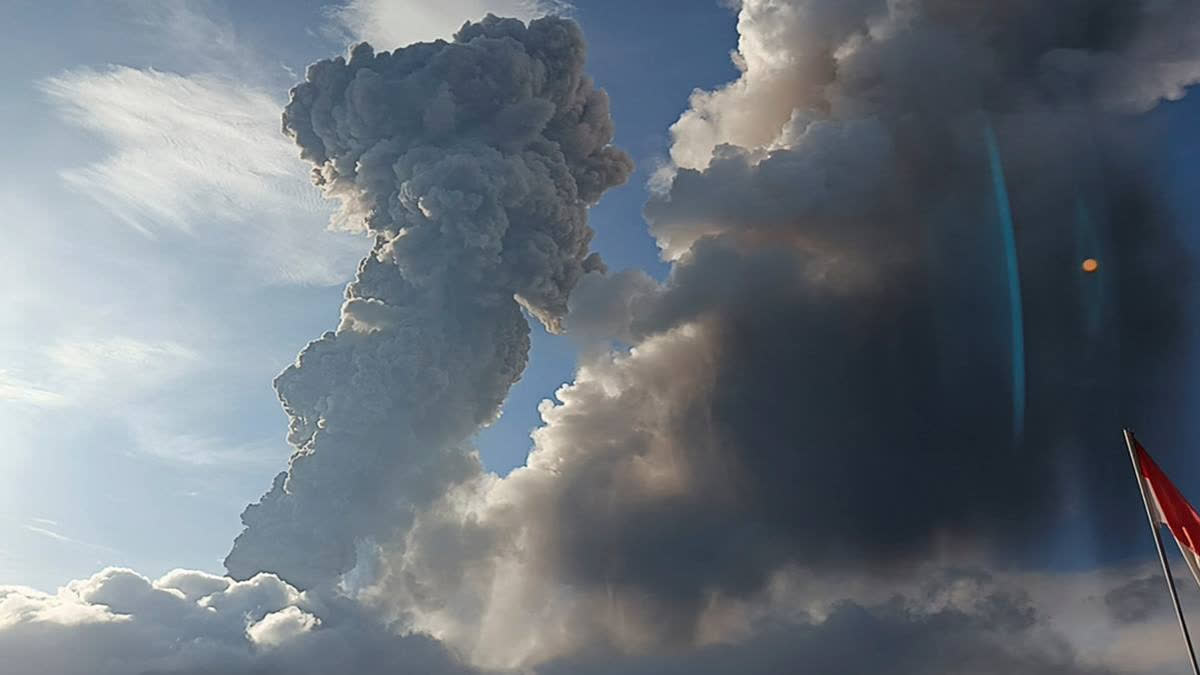Maumere: Indonesia's Mount Lewotobi Laki Laki erupted again Thursday, spewing a column of hot clouds that rose 2,500 meters (8,200 feet) from its peak, three days after a midnight eruption killed nine people and injured dozens of others.
There was no immediate report of casualties from the latest eruption.
The 1,584-meter (5,197-foot) volcano on Indonesia's remote island of Flores unleashed clouds of gray hot ash Thursday. The mixture of rock, lava and gas was thrown up to 1 kilometre (0.6 mile) from its crater, Indonesia's Center for Volcanology and Disaster Mitigation said in a statement.
The volcano lulled in activity since Monday's deadly eruption killed nine people and injured 64 others.
Monday's eruption affected more than 10,000 people in 10 villages. About 4,400 villagers moved into makeshift emergency shelters after the eruption, which destroyed seven schools, nearly two dozen houses and a convent on the majority-Catholic island.
The country's volcano monitoring agency increased Lewotobi Laki Laki's alert status to the highest level and more than doubled the exclusion zone to a 7-kilometer (4.3-mile) radius since then, prohibiting any activity in that area.
Authorities warned the thousands of people who fled not to return home, as the government planned to move about 16,000 residents out of the danger zone, said National Disaster Management Agency head Suharyanto, who like many Indonesians uses a single name.
"Permanent relocation is considered as a long-term mitigation measure to anticipate eruption in the future," Suharyanto told reporters after visiting the devastated areas Thursday.
Lewotobi Laki Laki is one of a pair of stratovolcanoes in the East Flores district of East Nusa Tenggara province, known locally as the husband-and-wife mountains. "Laki laki" means man, while its mate is Lewotobi Perempuan, or woman.
About 6,500 people were evacuated in January after Mount Lewotobi Laki Laki began erupting, spewing thick clouds and forcing the government to close the island's Fransiskus Xaverius Seda Airport. No casualties or major damage were reported, but the airport has remained closed since then due to seismic activity.
On Oct. 27, West Sumatra province's Mount Marapi — one of the country's most active volcanos — erupted, spewing thick columns of ash at least three times and blanketing nearby villages with debris. No casualties were reported.
Lewotobi Laki Laki is one of the 120 active volcanoes in Indonesia, an archipelago of 280 million people. The country is prone to earthquakes, landslides and volcanic activity because it sits along the "Ring of Fire," a horseshoe-shaped series of seismic fault lines around the Pacific Ocean.
Conclusion:



